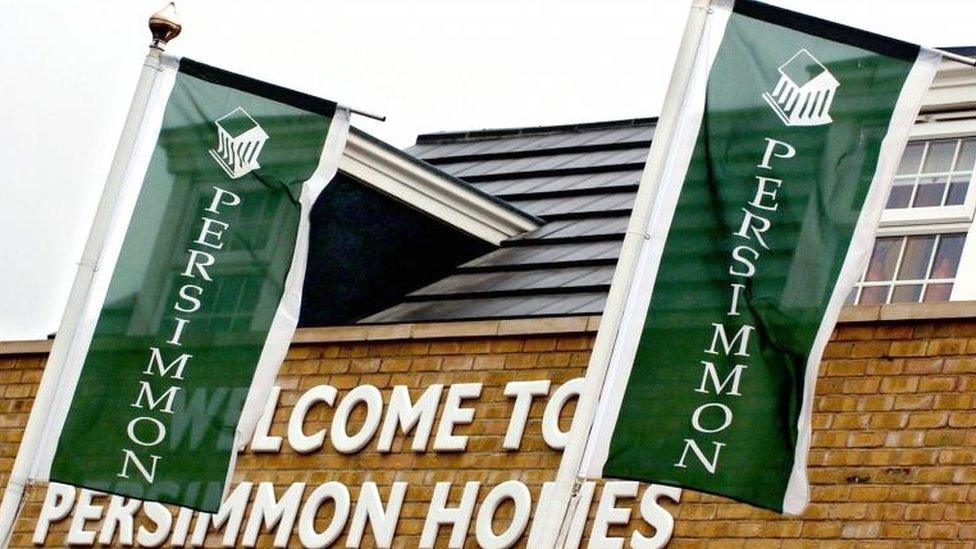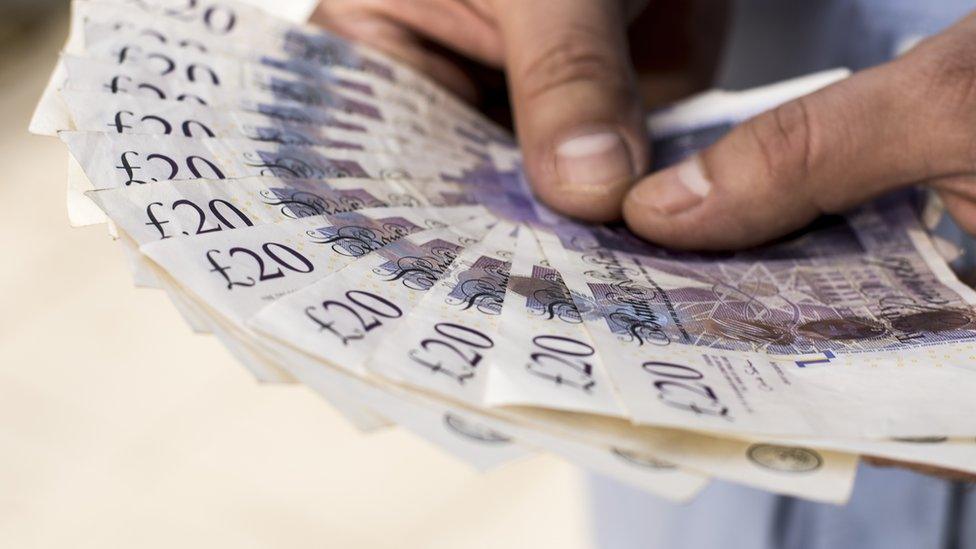Persimmon boss refuses to answer questions about £75m bonus
- Published
Last year Persimmon's previous chief executive refused to answer questions about his pay
The boss of house building firm Persimmon has walked off in the middle of a BBC interview after being asked about his £75m bonus.
"I'd rather not talk about that," Jeff Fairburn said, when asked if he had regrets about last year's payout.
The £75m, which was reduced from £100m after a public outcry, is believed to be the largest by a listed UK firm.
Mr Fairburn has previously said he will give a "substantial proportion" of the bonus to charity.
The scale of the bonus last year drew widespread criticism from investors, politicians, charities and corporate governance experts.
They argued the unusually high bonus didn't reflect executives' hard work, but was driven largely by circumstances, including rising house prices and the government's house-buying incentive scheme Help to Buy.
Labour MP Rachel Reeves, who chairs the Business, Energy and Industrial Strategy Select Committee, said it was "unfortunate" that "Mr Fairburn thinks he is above answering questions about his extravagant gains and the cost to the public purse".
How did he get so much money?
The bonus scheme for top executives at the firm was linked to the company's share price.
The long term incentive plan was set up in 2012, when the shares were trading at about £4 each.
Executives were rewarded in shares, which they could cash in after a certain period.
By the time they were due to be awarded last year, the shares were trading about six times higher than this, at £24.
Crucially, the reward scheme did not include a cap, meaning the payout was potentially unlimited.
Why did the shares rise so much?
A combination of rising house prices, low interest rates enabling people to borrow more cheaply and government incentive schemes have been credited with driving all housebuilder shares higher.
The government's Help to Buy equity loan scheme was introduced shortly after the bonus scheme was established.
It allowed people to buy a new home with a deposit of just 5% of the cost and a low-interest equity loan from the government.
Critics argued that the scheme was the main reason Persimmon's share price had risen so far so quickly, and said that the firm's executives were unfairly benefiting from a government subsidy.
Vince Cable, the leader of the Liberal Democrats, said the bonus was "obscene" and "reminiscent of the worst excesses of corporate greed that helped to create the financial crisis, when short-termism was heavily incentivised and long-term planning ignored".
Didn't investors complain?
Initially in 2012, the bonus scheme was approved by the majority (85%) of investors.
However, once the scale of the awards became clear, shareholders complained. Aberdeen Standard Investments, the sixth-largest shareholder in Persimmon, called the reward package "grossly excessive".
By the end of last year, both Persimmon's chairman and the head of the remuneration committee had resigned after admitting the plan was poorly designed and should have included a bonus cap.
Then in February, Mr Fairburn agreed to cut his windfall to £75m.
At the firm's annual meeting in April, some 48.5% of investors voted against the housebuilder's remuneration report.
The firm's interim chair, Nigel Mill, apologised and admitted it "could have all have been handled better... it should have been."
But he also said that no-one could have predicted that the "performance of the business would be so good over such a long period of time".
- Published23 February 2018

- Published25 April 2018

- Published4 January 2018
